Southeast Asia central to plastic crisis as world leaders negotiate treaty to fight pollution
The United Nations Intergovernmental Negotiating Committee on Plastic Pollution has convened this week in Paris to try and institute a binding treaty to establish governance on plastic pollution.
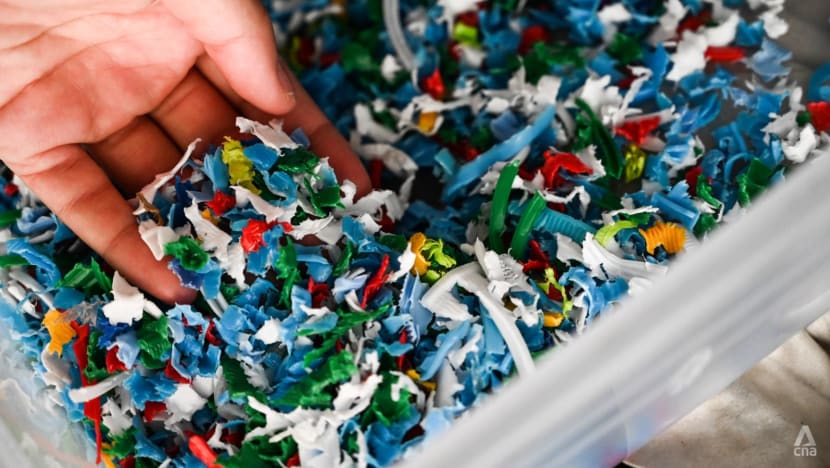
Plastic waste causes harm to marine environments and human health. (Photo: Jack Board/CNA)
BANGKOK: It is a dirty, constant stream that flows by the banks of the tiny Koh Klang community in central Bangkok.
The island juts out in a widening of a canal that runs through the city before emptying out into the Chao Phraya, the country’s major river.
Plastic bottles, bags, straws and other debris float by in the murky rush. It is an endless reminder of the sheer quantity of plastic entering the city’s waterways and wider environment.
Southeast Asia is one of the highest plastic-polluting regions in the world. India, Malaysia and the Philippines are home to the highest levels of riverine plastic pollution in the world, according to a 2021 report produced by The Ocean Cleanup, a Dutch non-governmental organisation (NGO).
In Thailand the problem has grown worse in the years since the COVID-19 pandemic struck, as momentum behind reducing plastic use faded in favour of public health and convenience.
Just 18 per cent of Thailand’s 2.76 million tonnes of plastic waste generated last year was recycled, according to the country’s Pollution Control Department. The vast majority - approximately 76 per cent - ended up in landfills and some 80,000 tonnes was estimated to have leaked into the environment.
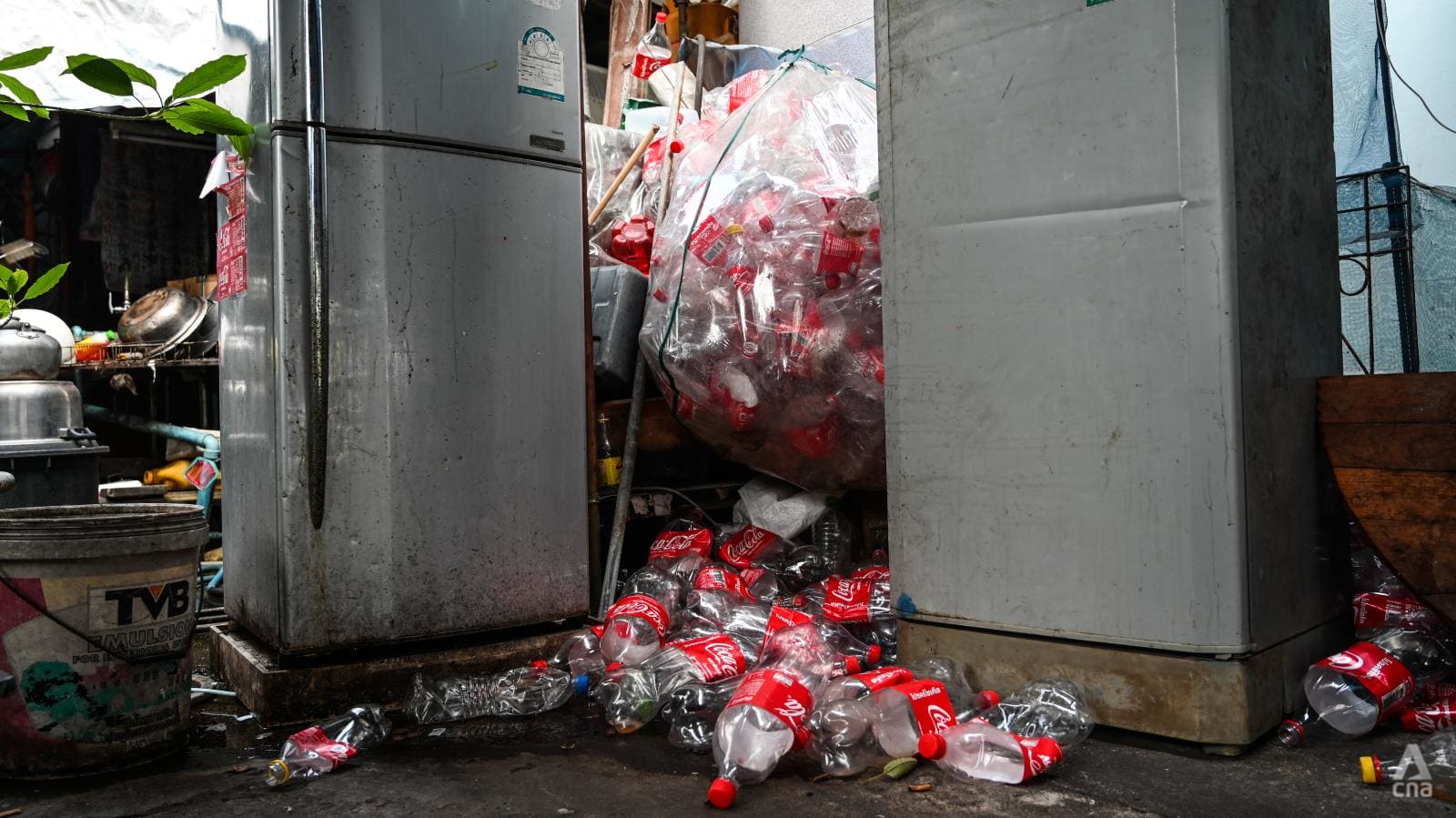
The amount of recyclable plastic discarded in 2021 was less than half of the figure in 2019. In that period the amount of non-recyclable plastic increased by more than 30 per cent.
More research is underway in the country to understand the risks posed from microplastics - extremely small pieces of plastic debris - in the environment. The experts are clear that the impacts are alarming for marine biodiversity and human health.
“It’s found everywhere,” said Sujitra Vassanadumrongdee, a senior researcher on plastic waste at Chulalongkorn University, mentioning the presence of microplastics in sea salt, fresh water, drinking water and industrial sludge.
In response to the growing global crisis, world leaders have convened this week in Paris to try and establish a binding treaty to establish governance of plastic pollution.
Similar to climate change negotiations, major lines of conflict exist between different governments, making consensus difficult to reach.
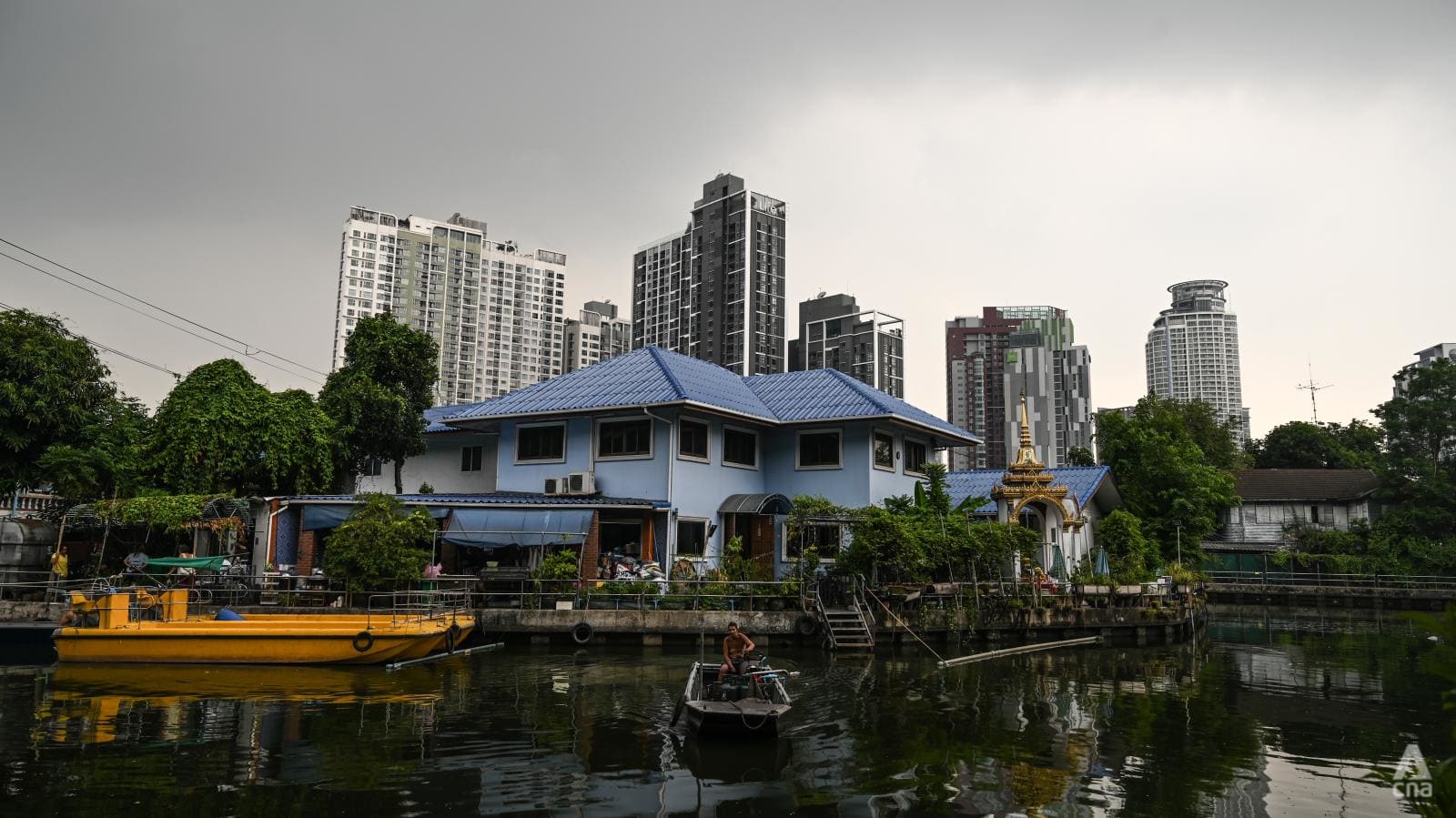
NEGOTIATION SHOWDOWN IN PARIS
Tense talks are expected to end with a draft text, following a commitment last year to develop a legal agreement by 2024.
“It’s clear that the scale of the problem warrants a treaty,” said Dimitris Faloutsos, the head of Transboundary Waters at the Global Water Partnership (GWP), a global network of government institutions, academics, companies and NGOs.
Sticking points include whether producing less plastic is viable going forward. Stark differences also remain among countries most impacted by plastic waste and those most responsible for producing it.
Heavily polluting nations with strong interests in oil and gas - used to produce plastic - including the United States, Russia and Saudi Arabia have lobbied hard against curbing plastic production or bans, in favour of focusing on cleaning existing waste.
Even for Thailand, plastics expert Sujitra Vassanadumrongdee said the strong presence of petrochemical industry representatives in Thailand’s delegation to Paris, and the exclusion of academic and NGO groups, showed the strong sway plastic producers still have and dictates the focus of plastic policies.
“The Thai government now focuses more on waste management and recycling, which cannot solve the plastic waste problem sustainably,” she said.
“I really like the word ‘lightening’ of the plastic and turning off the tap. But right now the Thai government and stakeholders in Thailand just focus on downstream solutions.”
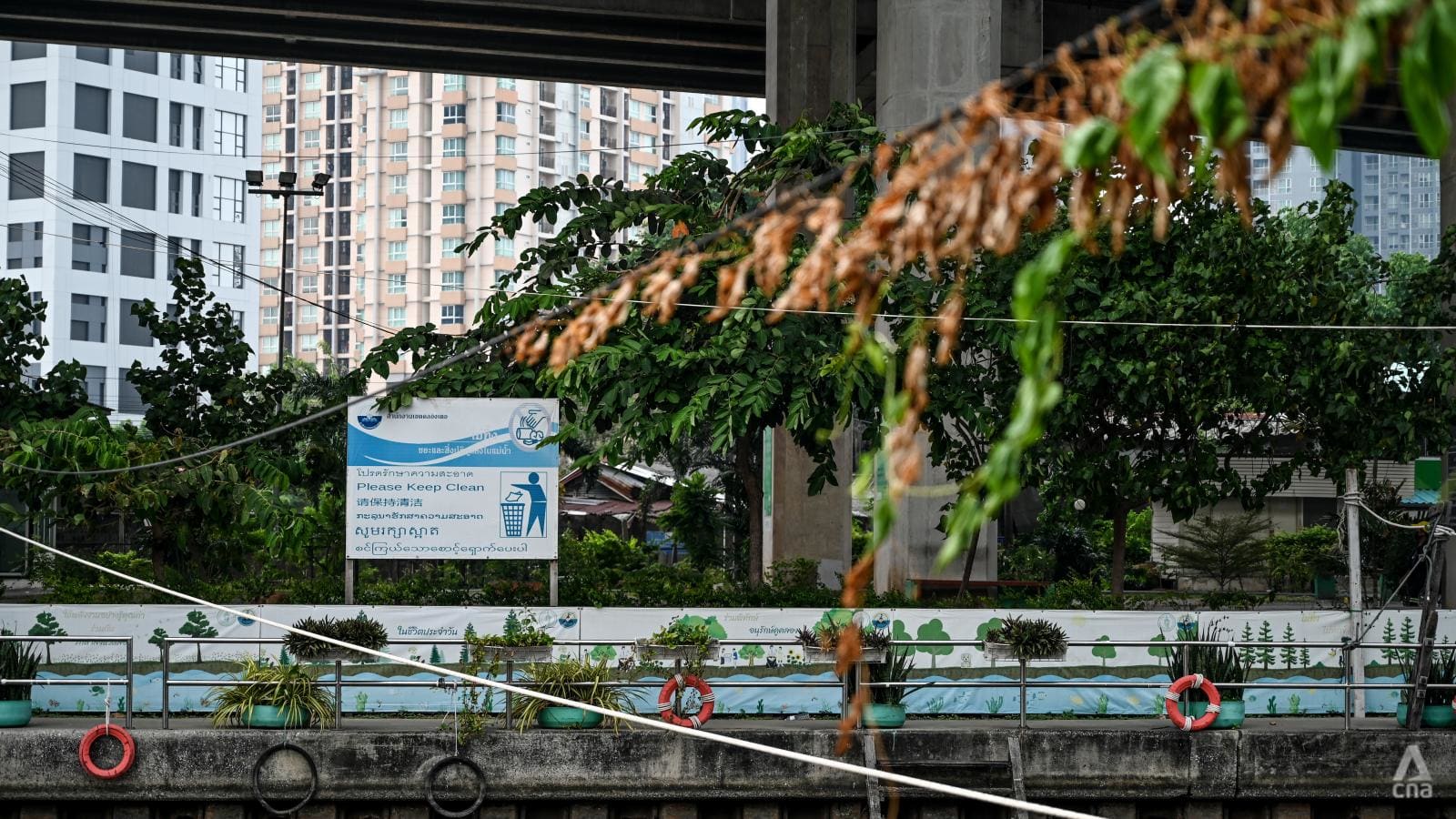
TURNING OFF THE PLASTIC TAP
As a precursor to the Paris negotiations, the UN released a conclusive report last month laying out the steps that could slash plastic pollution.
It proposes systemic changes, including ushering in a real circular economy with safety standards for disposing of non-recyclable waste and making manufacturers responsible for environmental microplastics that their products cause.
The report calls for a huge injection of funds for new production facilities, creating jobs and improving the livelihoods of informal workers.
It also urges governments to remove fossil fuel subsidies, to make recyclable goods competitive with virgin plastic, promote reuse options and replace particularly harmful products like plastic wrappers, sachets and takeaway items with alternative materials.
More than two-thirds of plastic consumed around the world are short-lived products, according to the Organisation for Economic Co-operation and Development (OECD), meaning they will rapidly become waste. The consumption of such plastic is not slowing down - global production could triple by 2060 under a business-as-usual scenario.
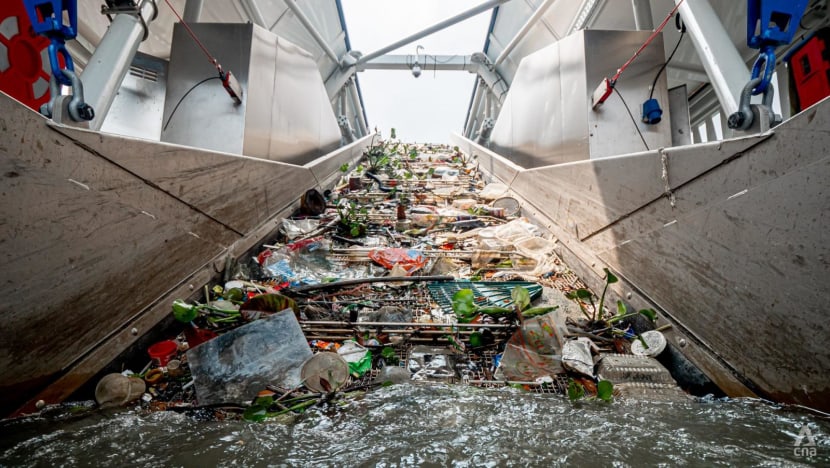
Even with great transformation, about 100 million tonnes of single-use or short-life plastic will still need to be dealt with annually by 2040, the UN report found.
Turning off the “plastic tap”, as the UN describes it, could be one of the most challenging aspects of negotiations, but also the most necessary, according to Faloutsos.
“There is no doubt that the treaty is going to provide much needed coordination on how to address plastic waste. Things like establishing targets and timelines for reducing plastic production volumes are within its remit,” Faloutsos said.
“Hopefully it can also go some way to levelling the playing field for more circular solutions and addressing existing economic incentives that drive plastics production,” he said.
“None of this will be enough though if there is no action in the field of plastic production reduction, banning and substitution of the single-use plastics with products that are not dangerous for the ecosystems and humans,” he said.
GWP and Chatham House cautioned in a paper released this week that the treaty mechanism would be no “silver bullet” to the issue. Rather, a raft of upstream and downstream policies would be required, as well as better data and investment in infrastructure.
There are good models to follow, like in Japan, the European Union and Chile, the paper said, where holistic approaches like setting targets to eliminate single use plastics instead of pure clean-up activities have delivered positive results.
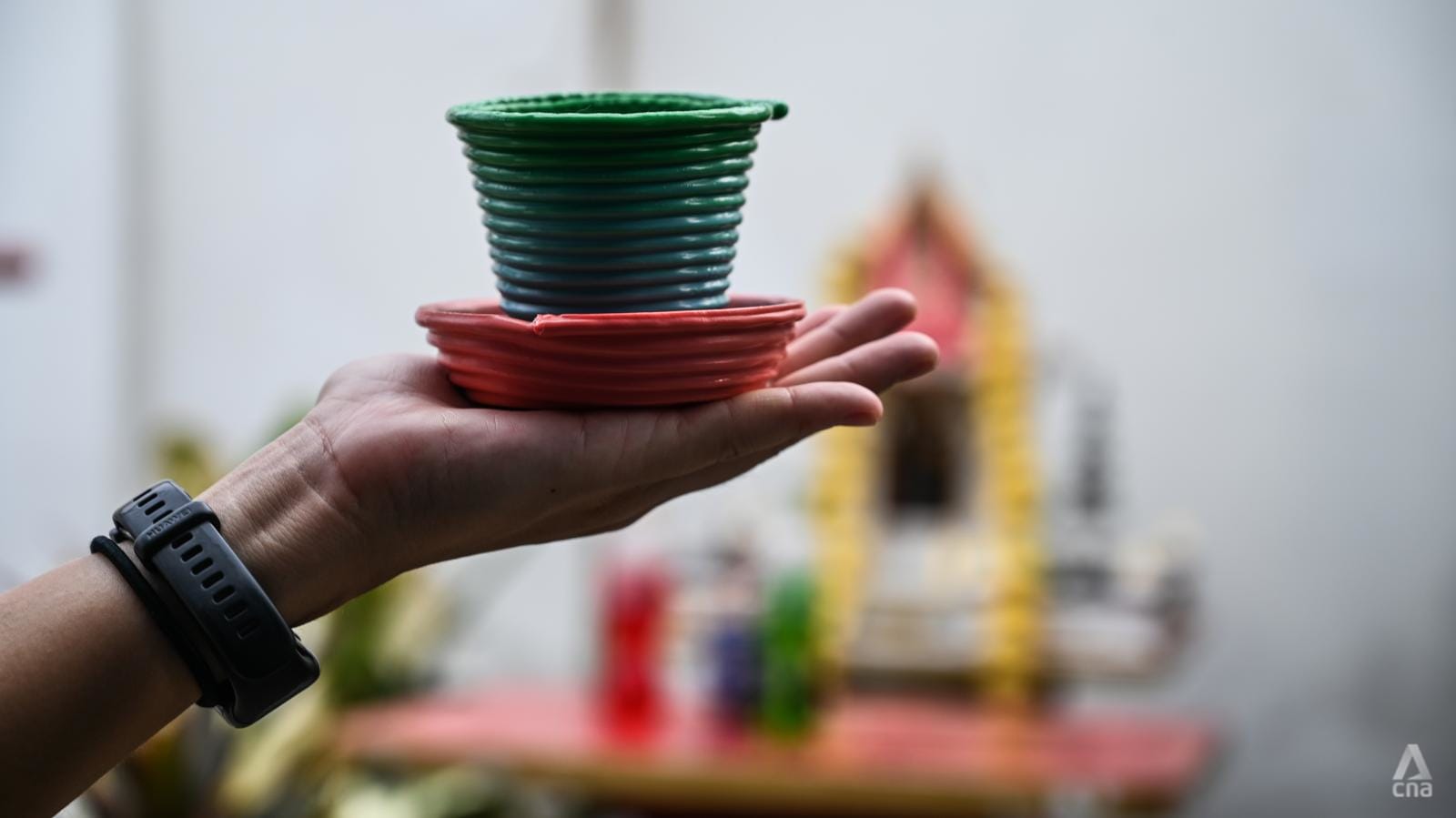
ASIA’S RIVERS ARE A BIG PROBLEM
While experts agree that more focus needs to be put into slowing down the plastic production rush, others maintain that the plastic already out in the wild needs to be urgently dealt with.
Ridding the planet of plastic pollution is at the core of The Ocean Cleanup’s mission. The Dutch NGO proposes rolling out technology to intercept and capture 90 per cent of the plastic floating in the ocean.
It is a bold and ambitious task that naturally has drawn the organisation to one of the main sources of plastic waste reaching the oceans in the first place - Asia’s rivers.
The organisation is in the process of rolling out its “spaceship look-alike devices” in Indonesia, Vietnam, Malaysia and Thailand, targeting some of the region’s most plastic-strewn waterways.
“The most polluting rivers are sadly located in Asia. So it's just where our attention is drawn,” said Steven Paalman, the director of Asia Rivers for The Ocean Cleanup.
“We will launch a few projects throughout the region to test the waters. Can we actually make a difference here? And it appears to be yes,” he said. The autonomous, solar-powered vessels called Interceptors operate like catamarans, drawing plastic in their path onto a conveyor belt and into a 50 cubic metre dumpster area.
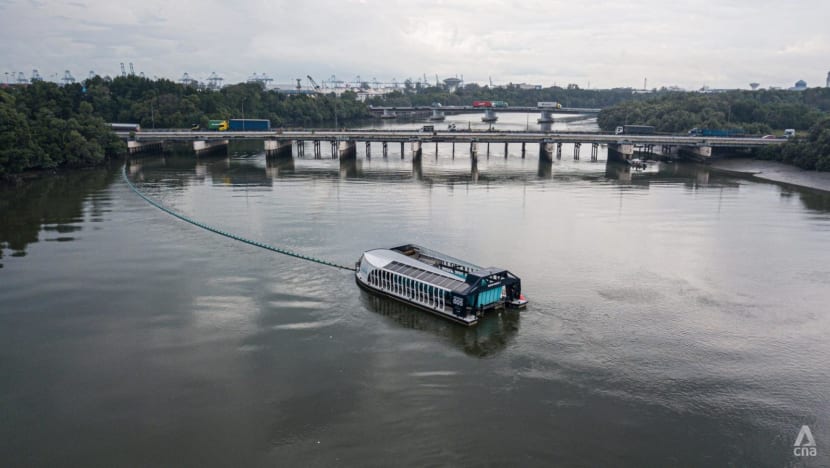
Every river is different, so extensive testing and deployment needs to occur before the group’s vessels can be rolled out in earnest, Paalman explained. Bangkok’s Chao Phraya, for example, is heavily trafficked and intimidating in size, so will take careful planning to tackle.
Interceptors are currently operational in the Klang River in Malaysia and in Can Tho in the Mekong Delta, while the organisation confirmed more should enter the water in the Cisadane River in Indonesia and Chao Phraya sometime in 2023.
“I think by doing this cleaning up of what's already there, or what is floating down, we hope to incentivise or show that it's a good practice to start having better waste management in place in those countries,” he said.
“You can do this until we retire, and I'm aware of that. But it's out there. So somebody has to pick it up. I call myself a garbage man.
“We are biding time to be honest. Ideally, I see better wage management deployed throughout the region,” he said.
Meanwhile, the community on Koh Klang is already actively playing its small part to tackle the plastic problem on a local scale. Families are encouraged to sort waste and collect plastic around the island.
There is a financial impetus to do so - much of the plastic products can be on-sold. They also upcycle, turning plastic lids from bottled drinks into useful products like flower vases using special machinery that transforms the waste into a hot malleable paste.
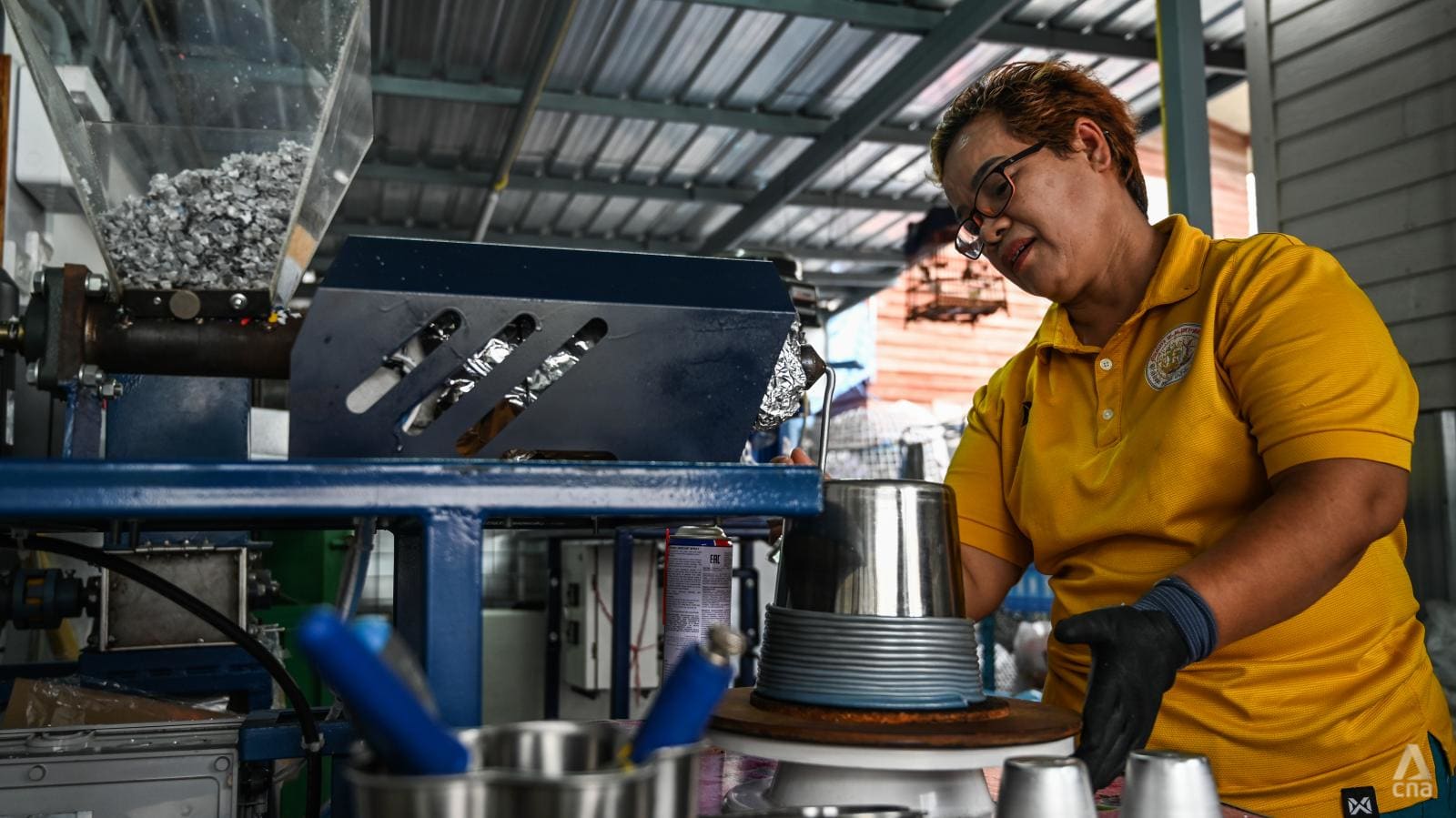
Phongsri Sonkhum is an expert using the machinery, which is an initiative of local NGO Precious Plastic and other corporate groups.
The 55-year-old remembers when the plastic pollution problem was much worse here. Even without stricter rules and regulations, empowered communities can make a difference.
“We’re a community that lives on the canal, so we feel that we’re directly affected by this. Years ago when I first moved here, I couldn’t even see the water because it was full of rubbish and plastic waste,” she said.
“The plastic issue comes from people. We buy things at the market and they all come with plastic bags. Every community faces this problem, I’m sure it’s not just a problem here.
Phongsri noted that the initiative to tackle plastic pollution in her community has had a “positive impact” on the environment.
“More people are separating their trash and collecting plastic to sell. People also see the work that we’re doing and other communities have visited us to see if they can replicate this model,” she said.
“I feel a sense of pride and accomplishment doing what I do.”
Additional reporting by Jarupat Buranastidporn.
Read this story in Bahasa Indonesia here.
















